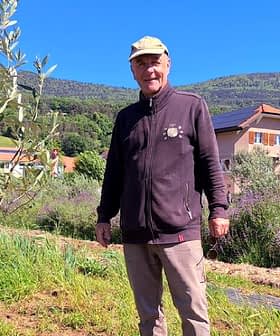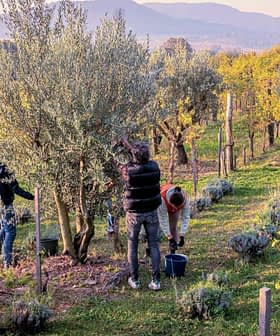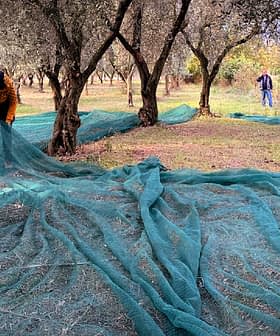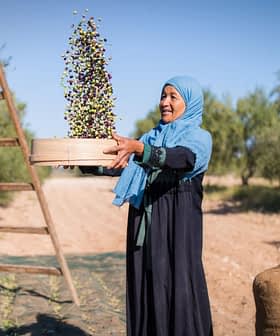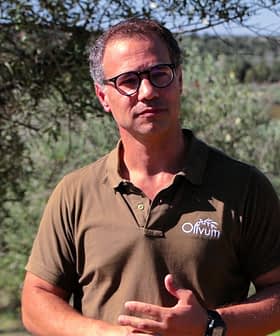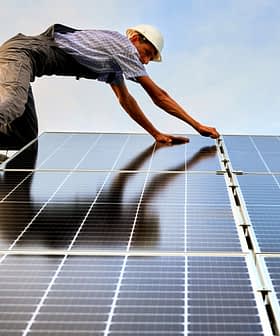Quarter of the World's Population Facing 'Extreme' Water Stress
At least ten olive-growing countries in the Mediterranean basin are ranked as "high water stress," according to data compiled by the World Resources Institute.
 In 2017, Cape Town, South Africa nearly ran out of water. Similar situations are likely to occur more frequently around the globe.
In 2017, Cape Town, South Africa nearly ran out of water. Similar situations are likely to occur more frequently around the globe.Data from the WRI’s Aqueduct Water Risk Atlas shows that 17 countries, primarily in the Middle East and North Africa, are facing “extremely high” water stress, affecting a quarter of the world’s population. The CEO of the World Resources Institute warns that failure to address this crisis will have costly consequences in terms of human lives, livelihoods, and global stability, with a new generation of solutions emerging but not quickly enough to mitigate the risks.
Data compiled by the WRI’s Aqueduct Water Risk Atlas has revealed that 17 countries representing one quarter of the world’s population are facing “extremely high” water stress, with most located in the Middle East and North Africa.
A new generation of solutions is emerging, but nowhere near fast enough. Failure to act will be massively expensive in human lives and livelihoods.
“Water stress is the biggest crisis no one is talking about. Its consequences are in plain sight in the form of food insecurity, conflict and migration, and financial instability,” Dr Andrew Steer, president and CEO of the World Resources Institute, said. “The newly updated Aqueduct tools allow users to better see and understand water risks and make smart decisions to manage them. A new generation of solutions is emerging, but nowhere near fast enough. Failure to act will be massively expensive in human lives and livelihoods.”
The WRI’s Aqueduct Water Risk Atlas is a tool that ranks 189 countries according to 13 indicators of water stress, drought risk, and riverine flood risk. It reveals that many olive-producing countries including Italy, Spain, Greece, Portugal, Tunisia, Algeria, Syria and Turkey are under “high” water stress, while Israel and Lebanon are ranked among the most water-stressed countries.
See Also:Sustainability NewsQatar tops the rankings as the most water-stressed country in the world, while in Asia, India ranks at number 13 followed by Pakistan and Turkmenistan.
“The recent water crisis in Chennai gained global attention, but various areas in India are experiencing chronic water stress as well,” Shashi Shekhar, a senior fellow at WRI India and former Secretary of India’s Ministry of Water Resources, said. “India can manage its water risk with the help of reliable and robust data pertaining to rainfall, surface and groundwater to develop strategies that strengthen resilience. Aqueduct can help identify and prioritize water risks in India and around the world.”
In the 17 countries experiencing the highest water stress, 80 percent of the available surface and groundwater supplies are used up by agriculture, industry, and municipalities in an average year.
This is the first time the WRI’s data included rankings of states and provinces within each country. Though it ranks the United States at number 48 on the country list, a few U.S. states are experiencing serious water stress, most notably New Mexico and California (olives are also grown in both states), with New Mexico experiencing “extremely high” water stress.
With global warming, pressure on water availability is expected to intensify in the most water-stressed regions of the world with the risk of scarcity presenting a serious threat to agriculture and food security as well as a heightened risk of conflict and migration. Experts also warn that “day zero” scenarios, like the one experienced by residents of Cape Town last year, may become increasingly common.


